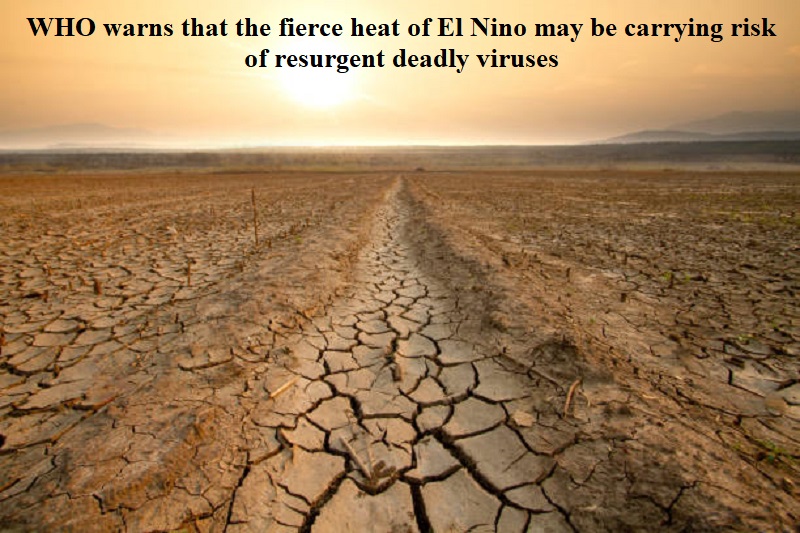
The return of the climatic phenomenon known as “El Nino” is raising concerns worldwide about extreme weather, agricultural disruption, and economic crises. However, experts have issued a warning that El Nino’s intense heat may also lead to a resurgence of tropical diseases.
During a press conference, the Director General of the World Health Organization (WHO), Tedros Adhanom Ghebreyesus, highlighted the likelihood of El Nino increasing the spread of diseases such as dengue, chikungunya, and Zika, which are transmitted by mosquitoes.
Ghebreyesus stated that the WHO has been preparing to address the anticipated rise in viral diseases like Zika, chikungunya, and dengue, as there is a “very high probability” of their transmission.
“To respond to this threat, WHO last year established a global arbovirus initiative, which aims to strengthen the world’s ability to prevent, detect, and respond to outbreaks of these diseases. Many of the same capacities that countries established for COVID-19 can also be leveraged for dengue and other diseases. And many of the actions that can prevent dengue are the same actions that can help prevent so many other diseases – including climate action,” he explained.
The El Nino effect, which brings warmer weather, creates favorable conditions for mosquitoes to multiply in various parts of the world. Consequently, regions from South America to Asia have already witnessed an increase in tropical diseases. Peru, for example, has declared a state of emergency due to its worst recorded dengue outbreak, with nearly 150,000 suspected cases reported so far, straining the country’s healthcare system.
Similarly, Thailand has reported the highest number of dengue cases in the past three years, with 19,503 cases reported in 2023. Cambodia, Malaysia, and Singapore have also experienced a rise in cases, prompting authorities to raise concerns about the potential for further increases during specific months.
The WHO emphasizes that climate change contributes to mosquito breeding and the spread of these diseases, necessitating a comprehensive approach that includes both disease prevention and climate action.

Post Your Comments